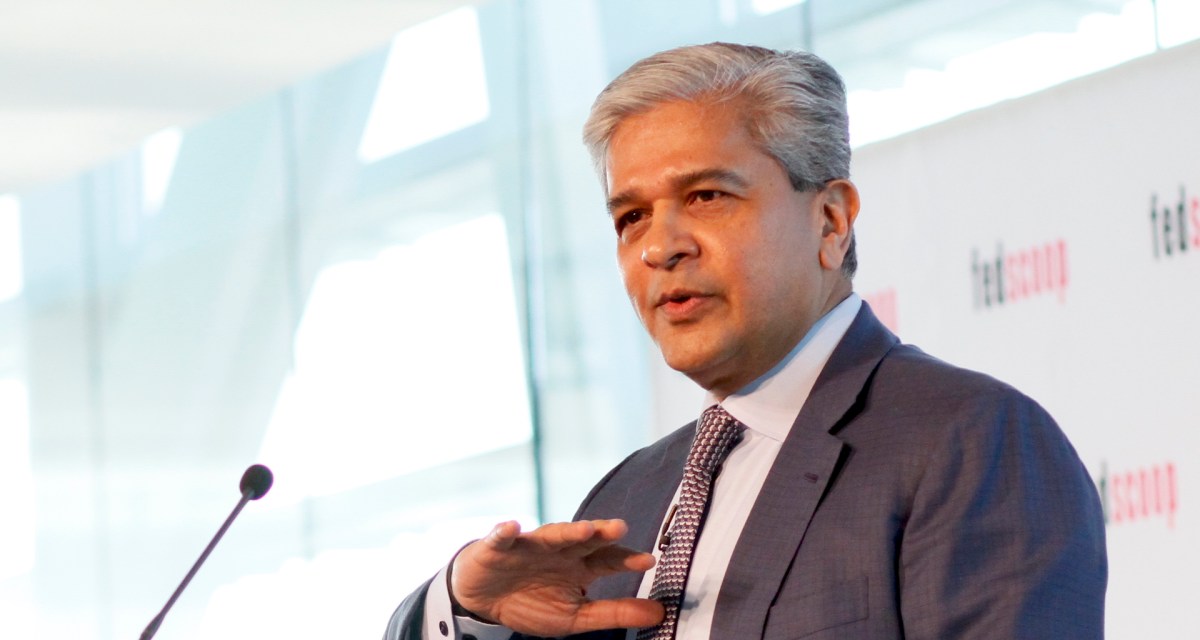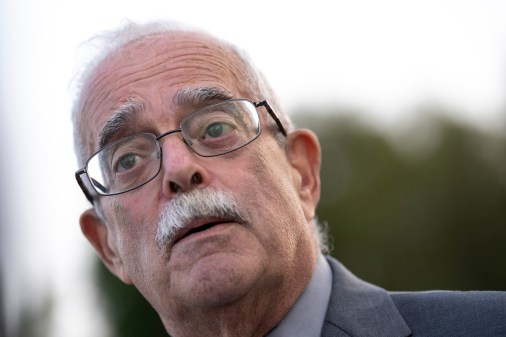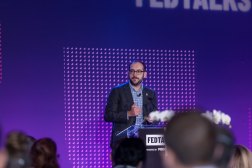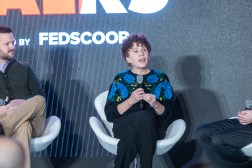Exit Interview: Anil Cheriyan on TTS’s expanded importance in a pandemic

In the 18 months Anil Cheriyan spent as director of the General Services Administration‘s Technology Transformation Services, he says he’s watched the budding digital services organization grow in momentum, credibility and recognition serving agencies across the federal government.
But TTS‘s biggest opportunities to drive impact across the federal government still lie ahead, he told FedScoop.
Cheriyan will step away from federal service Friday to take a role with a “global technology firm” on its executive committee. The 2020 FedScoop Best Bosses in Federal IT award winner couldn’t share exactly where he’s headed, only that he will be “driving strategy and alliances as well as all of their tech,” calling it “right in my wheelhouse.”
As he departs, Cheriyan believes TTS is poised to play a critical role in helping federal agencies improve their delivery of digital services as they become more dependent on modern technologies, collaboration tools and remote interactions in the wake of COVID-19.
“It really has highlighted the need for more and more agencies to drive better digital transformation, digital adoption of all of their services,” he told FedScoop. “So all the things that TTS provides, we just need to amplify those and really build those out.”
Cheriyan spoke with FedScoop one last time as the TTS director in an exit interview. During that conversation, he discussed what he’s learned during his time in government, the impact of government tours of duty and the future of TTS.
Editor’s note: This transcript has been edited for clarity and length.
FedScoop: You’ve been at GSA now for just over 18 months. As you step away, what can you share in terms of what you accomplished and what you learned from it?
Anil Cheriyan: You know, this has been a great 18 months. It’s been my first time in government, so I learned a lot. I joined with the whole idea of just listening and learning. And I spent the first three months just understanding all the different components of TTS and really the art of the possible.
One reason why I joined was I really felt that we had an opportunity to drive significant change being in this transformation arm across the government, and it’s been a great journey. We’ve had significant, real improvements that we can say that we’ve worked with a lot of agencies on. The [Centers of Excellence] program, for example, was just two agencies when I started. We grew that to … more than 10 agencies. That’s significant, and there’s more coming down the pike.
We established an AI center of competency, we established an RPA center of competency. Our [Presidential Innovation Fellows program] grew to about 40 fellows, which was about 17 when I got here, which really showed that the demand was really there for the Presidential Innovation Fellows. FedRAMP was a significant improvement in terms of cycle times, agency reuse, the number of cloud service providers that we work with, and there’s still work to be done there. 18F is doing great. We’re well on the path towards cost recoverability there.
At the heart of it, it’s really bringing this into a one TTS approach and bringing all the components together. And really where it showed the best was during our COVID response. It was just amazing. The team was just amazing. We really brought in all of TTS to help with the COVID response.
FS: We learned that Bob DeLuca will return to GSA to take over your role at least in the interim. What message or advice do you have for your replacement, whether it’s for him or the next eventual permanent leader?
AC: Let me start off by saying we’re really happy that Bob is able to come back. He’s coming back as a detailee just to help out during this interim period as the acting. I mentioned the CoE program, he was really the driver behind growing that to that many agencies. What I’d really say to Bob, and I have had this conversation with him, is ‘keep the momentum going.’ We’ve got a great team, we’ve got a really highly energized group of people. And, you know, the approach of driving this one TTS in terms of building the momentum, establishing sustainable real core practices, and delivering with excellence, which is the original strategic imperatives that we put in place — that hasn’t changed. So, you know, just keep that going and you’ll find that there’s a really strong group of people in the teams — very, very mission-oriented, purpose-driven. It’s really a great place to be in.
FS: What does the future of TTS look like? Are there any changes in mission? Is there planned growth in size or scale? Or has COVID changed the way TTS approaches its mission?
AC: I think the mission doesn’t change. Our mission is very simple. Our mission is really about making the lives of the public and public servants better by leveraging technology. So that hasn’t changed. That’s a fundamental mission and purpose. And that’s why people join, right? So that hasn’t changed.
However, COVID, in particular, with everyone now teleworking and a lot more in the public really looking for government services in a digital form, it really has highlighted the need for more and more agencies to drive better digital transfer, digital adoption of all of their services. So all the things that TTS provides, we just need to amplify those and really build those out. … So it’s really accentuated the need for TTS. And I think now’s the time for us to be playing much bigger and I’m glad we had the last couple of years to really establish ourselves, build the credibility, build the momentum, and really work in close partnership with industry. And that’s really helped — the industry has certainly helped us in getting us this far. And I think that we’ve got to take it to the next level. We have every opportunity to do that.
FS: What about your biggest challenges?
AC: Yeah, the challenges are still very much there. When you think about it, we spend over $100 billion on technology. There’s a significant portion of that just in terms of keeping the lights on. The amount of change that we have as an opportunity in federal government to make is still large. We still have a lot to do in terms of catching up with the private sector. So those have not changed.
One of the immediate challenges when I got here was TTS was not well known. But we’ve really been able to bring that to the forefront. So now the demand for TTS, whether it’s the CoEs or 18F or the PIFs is really coming in from the agencies and people are beginning to recognize that work we can do. So those challenges are still there. I think it’s a great challenge.
I think the way to just deal with that is, you can’t change 100 billion dollars’ worth of work. You’ve got to make an impact in key areas and really focus on those key areas and drive towards outcomes. And that’s kind of the mantra that we’ve been talking about, that I and my leadership team have really been working on: What is the real impact? Don’t tell me that you’ve consolidated data centers. Tell me what you’ve done for the farmer. Or don’t tell me that you move things to the cloud. Tell me what It really means to the end citizen. Are they getting their services better, cheaper, faster, and so on? So, I think if we have that focus, and have that citizen-serving mindset, I think we’ll do fine.
FS: TTS stands out across the government for encouraging technologists to take tours of duty with federal agencies. Talk about the importance of that, especially after your own short sting in government.
AC: It was a great surprise to me when I joined to find such a great caliber of folks in the Presidential Innovation Fellows, the 18F team, the CoE team, primarily because of the tour duty approach that we took. So I think we’ve got to continue to do that. I’d say in TTS, we’re north of 70% or 80% on a tour of duty. It was probably a higher amount a few years ago, and I felt we needed the balance as well. So there’s a little bit of a bring in the tour of duty folks to really get the talent, but also have a cadre of folks who are going to be the glue as it were to retain and retain the knowledge and to persist the model.
But I do want to say that TTS is never going to be this very large organization. Think of us as being the tip of the spear organization. And we really leverage industry to get the right talent and the right skills — that combination of TTS with the tour of duty folks, industry with real talent and real knowledge, and then there are the right teams from agencies. I think that’s a winning combination.






